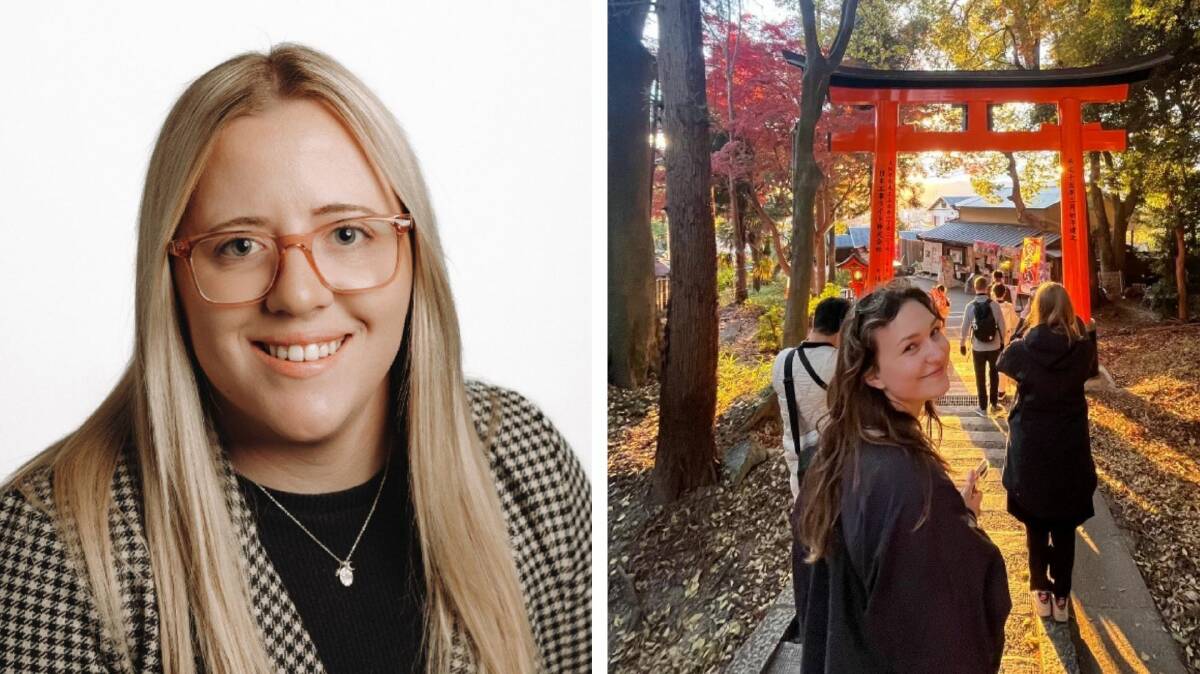It's Hannah's job to help people with their finances, but when it comes to her own student debt, the graduate accountant is worried she'll never be able to pay it off.
Almost three million students and graduates in Australia owe money for their tertiary studies, and on June 1 these debts will increase by between 4.2 and 4.8 per cent, according to projections from the Parliamentary Library commissioned by the Greens.

The Higher Education Contribution Scheme (HECS) debts, or Higher Education Loan Program (HELP), are given to students and indexed to inflation each year.
The indexation rate reached a decade high of 7.1 per cent in 2023.
While Prime Minister Anthony Albanese acknowledged that HECS is an area the federal government needs "to do much better" on April 18, everyday Australians are faced with the anxiety of ballooning debts.
Accountants have debts too
For accountant Hannah Pycroft, her debts are increasing by more than the amount she is paying off each year.
"I'm just scared that I'm never going to be able to repay it, it will basically just grow," the 23-year-old from Port Lincoln in South Australia said.
Without indexation, Ms Pycroft accumulated $50,244.44 in fees from her four-year double degree in business and commerce which she completed in 2023.
With indexation, her debt has grown to $53,116.61.
Im just scared that I'm never going to be able to repay it, it will basically just grow.
- Hannah Pycroft
The accountant said her debt was indexed $32.69 in 2021. In 2022, it was indexed $689.32. And in 2023, it was indexed $2,150.16.
She places whatever "spare money" she has as a lump sum each year into paying off the loan.
"I put in 1k before indexation hit last year, but that did nothing but pay off a bit of what I was indexed," she said.
Ms Pycroft suggests the federal government provide a solution by removing or reducing indexation.
"Sadly, I was hoping the government would have done something to help us, but they haven't done anything," she said.
Chronic debt and chronic illness
Baillie McWhirter has $50,000 in HECS-HELP debt from several degrees she was unable to complete due to struggles with a chronic illness.
She studied music at the University of New South Wales in 2019 before dropping out due to health issues - not without accumulating thousands of dollars in fees.

She then studied ministry at a private bible college in Sydney, before dropping out due to similar health issues - and again accruing more debt.
The 24-year-old was diagnosed with Crohn's disease in 2023 which had been the cause of many of her previous struggles.
"I'm never going to be able to work a real full-time job that has full-time hours because this chronic illness affects my fatigue and my mental health and my physical ability to walk around," she said.
She said that she would probably never be able to finish the courses she began due to her health.
Meanwhile, her debts are increasing at the rate of the indexation.
"For the rest of my life, it's going to be figuring out a way to survive, to financially survive, to balance health and my mental health," she said.
"Then I think adding on top of that, a $50,000 debt that is just impossible to do anything about, it's honestly terrifying."
For the rest of my life, it's going to be figuring out a way to survive, to financially survive, to balance health and my mental health.
- Baillie McWhirter
She said she is "begging" the government to freeze indexation on debts before June 1 2024 and signed a petition which has 34,000 signatures to federal policymakers.
"That's just really disgusting to me, that they're happy to profit off someone that has health issues that can't really do anything about it," Ms McWhirter said.
A quarter of a million people want change
Other individuals want the federal government to reduce the indexation rate to match the Consumer Price Index or Wage Price Index, whichever is lower.

A petition was started by independent MP Dr Monique Ryan and has garnered 260,000 signatures.
"Young people are facing a housing crisis, a cost-of-living crisis, and a climate crisis - they shouldn't be facing a HECS debt crisis as well," the change.org petition says.
The Universities Accord final report was published in February 2024 and made the recommendation that indexation on student loans should be set to whatever was lower out of the consumer price index and the wage price index.


